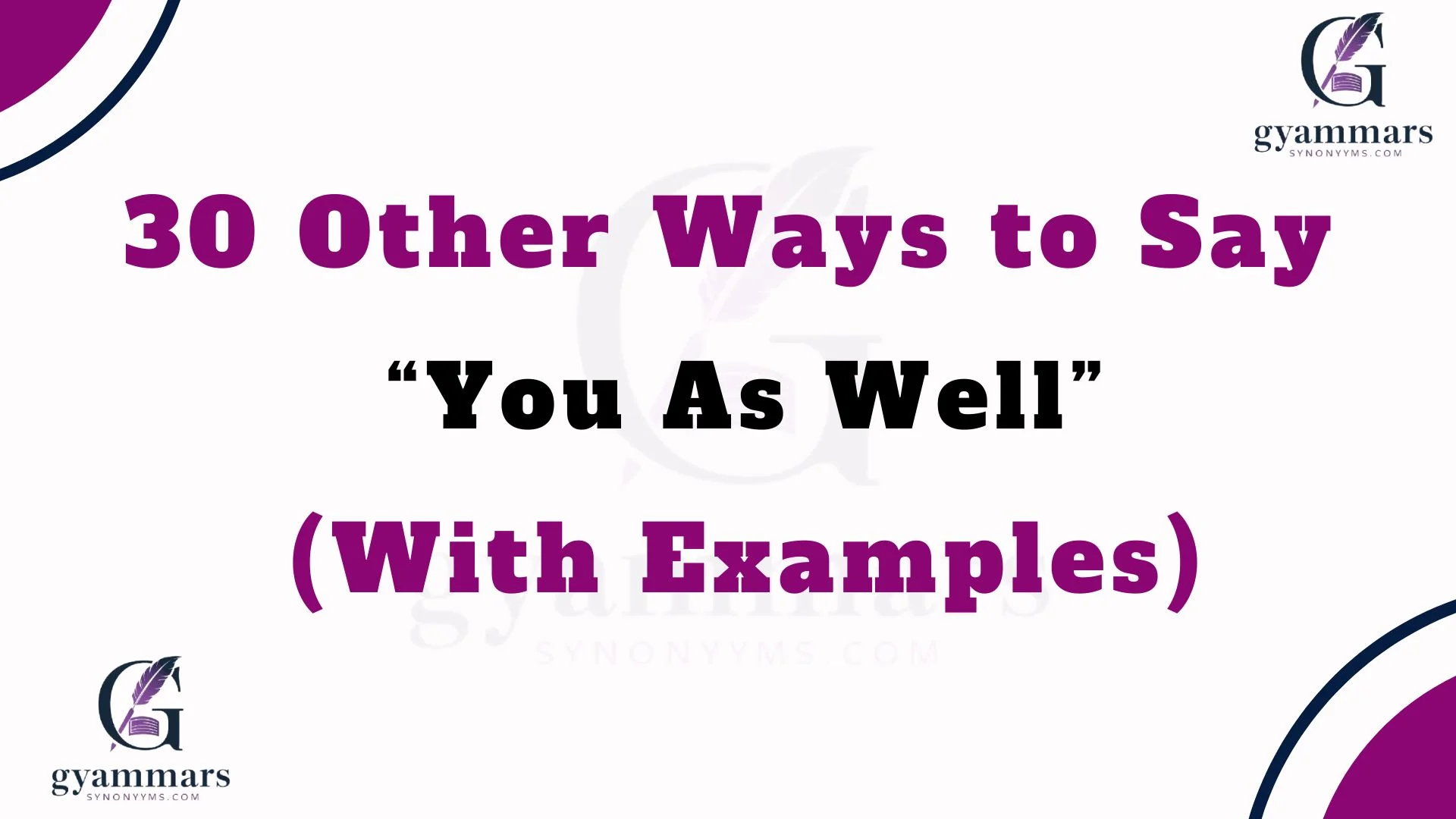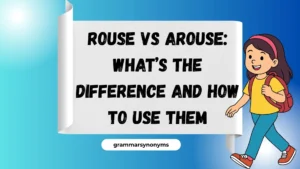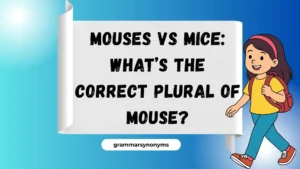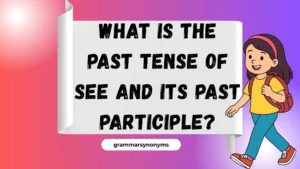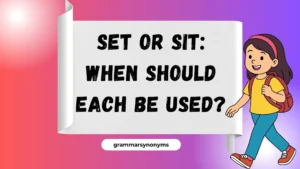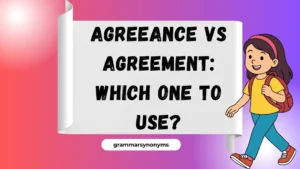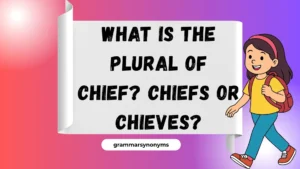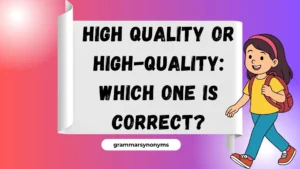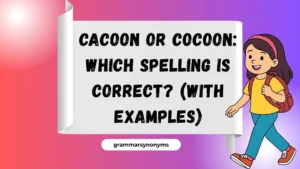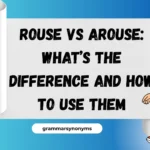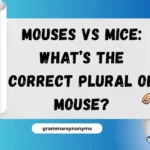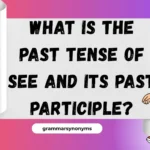Finding the right words to express care, respect, and warmth can transform even the simplest exchange into something meaningful. When someone says “Have a great day!” or “Nice to meet you!”, replying with a simple “You as well” works fine—but sometimes, you want to sound a little more personal, polished, or heartfelt.
That’s where alternative ways to say “You as well” come in. Whether you’re writing a professional email or chatting with a friend, these expressions can make your response feel more natural, thoughtful, and engaging.
What Does “You As Well” Mean?
Definition: “You as well” is a polite and neutral way of returning good wishes or kind remarks. It simply means “the same to you.”
Detailed Explanation: People use “You as well” when they want to reciprocate a sentiment—like saying “thank you” or “have a nice day.” It fits in both formal and informal conversations and is grammatically correct, though a bit plain or generic at times.
Scenario Example:
- A: Have a wonderful evening!
- B: You as well!
Best Use: Use “You as well” in polite exchanges with coworkers, acquaintances, or strangers when you want to sound courteous without being overly emotional.
Tone: Polite, neutral, and slightly formal.
Additional Notes: It’s grammatically correct and widely accepted, but you can replace it with more expressive options for warmth or variety.
Is It Professional/Polite to Say “You As Well”?
Yes, it’s both professional and polite.
In business settings, “You as well” maintains formality and respect, making it suitable for emails, customer interactions, and formal greetings. However, in friendly conversations, it can feel a bit stiff or distant, which is why alternatives can help you connect better.
Pros and Cons of Saying “You As Well”
Pros:
- Clear, polite, and easy to use
- Universally understood
- Works in any setting
Cons:
- Lacks emotional warmth
- Sounds repetitive or mechanical in casual talks
- Doesn’t reflect personal connection
Synonyms For “You As Well”
- Same to You
- Likewise
- Back at You
- You Too
- Hope You Do Too
- You Got It
- The Pleasure’s Mine
- Wishing You the Same
- And to You
- Appreciate That — You Too
- You Have a Good One Too
- Glad to Hear That
- Sending the Same to You
- Much Appreciated — Same to You
- Cheers, You Too
- That’s So Kind — You Too
- I Feel the Same Way
- You Take Care Too
- I Wish You the Same Happiness
- Thank You, You Too
- Right Back at You
- Ditto
- You Deserve It Too
- May You Too Be Blessed
- That Means a Lot — Same to You
- Feeling’s Mutual
- My Pleasure — You Too
- Absolutely — You Too
- Blessings to You as Well
- Thank You Kindly — You Too
1. Same to You
Definition: A friendly and simple way of returning someone’s kind wishes.
Detailed Explanation: “Same to you” is a more relaxed way of saying “You as well.” It adds a natural and conversational tone.
Scenario Example:
- A: Enjoy your weekend!
- B: Same to you!
Best Use: Casual conversations, friendly exchanges.
Tone: Warm, natural, and approachable.
Additional Notes: Works perfectly in spoken English, slightly informal for formal writing.
2. Likewise
Definition: Means “in the same way” or “me too.”
Detailed Explanation: “Likewise” is a concise and professional replacement for “You as well.” It’s widely used in workplaces.
Scenario Example:
- A: It was great working with you.
- B: Likewise.
Best Use: Business meetings, polite closings, or formal greetings.
Tone: Professional, courteous.
Additional Notes: Ideal when you want to sound polished and brief.
3. Back at You
Definition: A playful and casual way to return someone’s good wishes.
Detailed Explanation: Often used among friends, “Back at you” feels energetic and cheerful.
Scenario Example:
- A: Have a great weekend!
- B: Back at you!
Best Use: Friendly, casual chats.
Tone: Informal, upbeat.
Additional Notes: Avoid using it in professional settings.
4. You Too
Definition: A direct and common response meaning “same to you.”
Detailed Explanation: “You too” is the most natural and popular version of “You as well.”
Scenario Example:
- A: Take care!
- B: You too!
Best Use: Everyday use with anyone.
Tone: Friendly, neutral.
Additional Notes: Perfect for both text and in-person conversations.
5. Hope You Do Too
Definition: Expresses genuine wishfulness for the other person.
Detailed Explanation: Adds warmth and care, especially when responding to positive sentiments.
Scenario Example:
- A: I hope you have a relaxing day!
- B: Hope you do too!
Best Use: Close relationships, friendly chats.
Tone: Warm, caring.
Additional Notes: Sounds sincere and affectionate.
6. You Got It
Definition: A casual response that affirms agreement or reciprocation.
Detailed Explanation: Commonly used in American English to express confidence or enthusiasm.
Scenario Example:
- A: Have a fun trip!
- B: You got it!
Best Use: Among friends, informal settings.
Tone: Confident, friendly.
Additional Notes: Avoid in business or formal messages.
7. The Pleasure’s Mine
Definition: A polite way to express appreciation, meaning “I feel the same.”
Detailed Explanation: Adds elegance and warmth, especially in greetings or farewells.
Scenario Example:
- A: It was lovely meeting you.
- B: The pleasure’s mine.
Best Use: Professional and social introductions.
Tone: Polite, refined.
Additional Notes: Great for networking or formal occasions.
8. Wishing You the Same
Definition: A heartfelt expression of reciprocation.
Detailed Explanation: “Wishing you the same” is gentle and personal, showing genuine care.
Scenario Example:
- A: Have a blessed day.
- B: Wishing you the same.
Best Use: Emails, messages, kind exchanges.
Tone: Warm, respectful.
Additional Notes: Excellent for written communication.
9. And to You
Definition: A classic phrase meaning “I wish you the same.”
Detailed Explanation: Often used in formal speech or greetings.
Scenario Example:
- A: Peace be with you.
- B: And to you.
Best Use: Formal or ceremonial contexts.
Tone: Polite, traditional.
Additional Notes: Sounds dignified and graceful.
10. Appreciate That — You Too
Definition: Combines gratitude with reciprocity.
Detailed Explanation: Shows that you acknowledge kindness and return it warmly.
Scenario Example:
- A: You’ve been so helpful—have a good night.
- B: Appreciate that—you too!
Best Use: Work or friendly exchanges.
Tone: Grateful, personable.
Additional Notes: Adds a touch of emotion and sincerity.
11. You Have a Good One Too
Definition: A casual phrase that returns good wishes politely.
Detailed Explanation: Often used when someone says “Have a good day” or “Enjoy your time,” this response sounds friendly and warm.
Scenario Example:
- A: Have a good weekend!
- B: You have a good one too!
Best Use: Ideal for text messages, everyday interactions, and casual chats.
Tone: Friendly and approachable.
Additional Notes: Common in North American English; works well in informal or semi-formal contexts.
12. Glad to Hear That
Definition: Expresses shared positivity or mutual feeling.
Detailed Explanation: When someone shares something nice or kind, “Glad to hear that” conveys empathy and acknowledgment.
Scenario Example:
- A: I had a wonderful time today.
- B: Glad to hear that!
Best Use: Perfect for conversations that involve sharing good experiences.
Tone: Supportive, warm.
Additional Notes: Works well in personal and professional settings.
13. Sending the Same to You
Definition: A sweet, heartfelt way to mirror good wishes.
Detailed Explanation: Shows emotional reciprocity and care, especially in written messages.
Scenario Example:
- A: Wishing you happiness and peace.
- B: Sending the same to you!
Best Use: Great for emails, texts, or cards.
Tone: Sincere, affectionate.
Additional Notes: Perfect for expressing warmth in thank-you or holiday messages.
14. Much Appreciated — Same to You
Definition: Combines gratitude with polite reciprocation.
Detailed Explanation: This response thanks the person while returning their kindness.
Scenario Example:
- A: Thanks for your help today — have a great one!
- B: Much appreciated — same to you!
Best Use: Professional and friendly interactions.
Tone: Polite, balanced.
Additional Notes: Excellent for workplace exchanges.
15. Cheers, You Too
Definition: A friendly British-inspired response meaning “thank you and same to you.”
Detailed Explanation: Common in casual English, it blends friendliness with gratitude.
Scenario Example:
- A: Cheers, mate! Have a good night!
- B: Cheers, you too!
Best Use: Texts, chats, informal work talk.
Tone: Warm, informal.
Additional Notes: Great for colleagues or friends; casual tone.
16. That’s So Kind — You Too
Definition: A warm acknowledgment of someone’s kindness.
Detailed Explanation: Adds sincerity by recognizing the compliment before reciprocating it.
Scenario Example:
- A: You’re always so thoughtful — have a great day.
- B: That’s so kind — you too!
Best Use: Conversations where gratitude or appreciation is exchanged.
Tone: Gentle, heartfelt.
Additional Notes: Excellent in friendly or semi-formal interactions.
17. I Feel the Same Way
Definition: Expresses mutual appreciation or agreement.
Detailed Explanation: When someone compliments or expresses a feeling, this phrase shows shared sentiment.
Scenario Example:
- A: It’s been great working with you.
- B: I feel the same way.
Best Use: Ideal for emotional or professional goodbyes.
Tone: Sincere, appreciative.
Additional Notes: Adds depth and emotional connection.
18. You Take Care Too
Definition: A gentle, caring alternative.
Detailed Explanation: Commonly used when someone says “Take care,” it shows genuine concern.
Scenario Example:
- A: Take care on your trip!
- B: You take care too!
Best Use: Good for both formal and personal use.
Tone: Caring, warm.
Additional Notes: Very common in friendly farewells.
Also Read This: 30 Other Ways to Say “It Was a Pleasure Working with You” (With Examples)
19. I Wish You the Same Happiness
Definition: A heartfelt phrase that radiates goodwill.
Detailed Explanation: It’s more expressive and emotional than “You as well.”
Scenario Example:
- A: I hope your life stays full of joy.
- B: I wish you the same happiness.
Best Use: Personal messages, deep conversations.
Tone: Emotional, kind.
Additional Notes: Great for letters or heartfelt responses.
20. Thank You, You Too
Definition: A polite blend of gratitude and reciprocation.
Detailed Explanation: Combines a thank-you with a courteous response, perfect for quick exchanges.
Scenario Example:
- A: Have a wonderful day!
- B: Thank you, you too!
Best Use: Everyday interactions.
Tone: Warm, polite.
Additional Notes: Perfect for any situation—casual or formal.
21. Right Back at You
Definition: A fun, light-hearted way to return kindness.
Detailed Explanation: Conveys friendliness and enthusiasm, common among peers.
Scenario Example:
- A: You’re awesome—have a great week!
- B: Right back at you!
Best Use: Informal exchanges, close friends.
Tone: Playful, energetic.
Additional Notes: Avoid in very formal contexts.
22. Ditto
Definition: A one-word reply meaning “same here.”
Detailed Explanation: Simple, witty, and concise, often used to show agreement.
Scenario Example:
- A: You’re the best!
- B: Ditto!
Best Use: Between close friends or family.
Tone: Fun, informal.
Additional Notes: Avoid in emails or formal replies.
23. You Deserve It Too
Definition: A warm phrase showing shared appreciation.
Detailed Explanation: Expresses kindness while returning positivity.
Scenario Example:
- A: You really deserve all the good things coming your way.
- B: You deserve it too!
Best Use: Compliment exchanges.
Tone: Encouraging, heartfelt.
Additional Notes: Great for personal and supportive messages.
24. May You Too Be Blessed
Definition: A spiritual way to express good wishes.
Detailed Explanation: Common in religious or uplifting contexts.
Scenario Example:
- A: God bless you.
- B: May you too be blessed.
Best Use: Religious, emotional, or kind-hearted exchanges.
Tone: Respectful, spiritual.
Additional Notes: Adds depth and faith-based warmth.
25. That Means a Lot — Same to You
Definition: A humble and grateful way to reciprocate kindness.
Detailed Explanation: Expresses appreciation for the other’s sincerity.
Scenario Example:
- A: You’ve always inspired me.
- B: That means a lot — same to you.
Best Use: Deep, emotional exchanges.
Tone: Warm, honest.
Additional Notes: Great for close friends or heartfelt thank-yous.
26. Feeling’s Mutual
Definition: Shows shared appreciation or respect.
Detailed Explanation: A short, elegant phrase to express that the sentiment goes both ways.
Scenario Example:
- A: You’re amazing to work with.
- B: Feeling’s mutual.
Best Use: Friendly and semi-formal communication.
Tone: Friendly, balanced.
Additional Notes: Sounds genuine yet concise.
27. My Pleasure — You Too
Definition: Combines politeness with warmth.
Detailed Explanation: Great for closing polite interactions, especially in service or work.
Scenario Example:
- A: Thanks for your time.
- B: My pleasure — you too.
Best Use: Formal and professional.
Tone: Courteous, respectful.
Additional Notes: Excellent in customer service or polite dialogue.
28. Absolutely — You Too
Definition: A confident and positive affirmation.
Detailed Explanation: Shows enthusiasm and shared positivity.
Scenario Example:
- A: Enjoy your evening!
- B: Absolutely — you too!
Best Use: Cheerful, upbeat exchanges.
Tone: Energetic, friendly.
Additional Notes: Adds liveliness to casual talk.
29. Blessings to You as Well
Definition: A spiritual and comforting phrase.
Detailed Explanation: Similar to “May God bless you too,” but less formal.
Scenario Example:
- A: Blessings to your family.
- B: Blessings to you as well.
Best Use: Faith-related or heartfelt exchanges.
Tone: Gentle, spiritual.
Additional Notes: Conveys peace and compassion.
30. Thank You Kindly — You Too
Definition: A polite and traditional way to return a favor.
Detailed Explanation: Sounds refined and thoughtful, especially in writing.
Scenario Example:
- A: Enjoy the rest of your evening.
- B: Thank you kindly — you too.
Best Use: Professional or courteous exchanges.
Tone: Polite, classic.
Additional Notes: Adds old-fashioned charm and warmth.
💬 Conclusion
Finding the right alternative to “You as well” isn’t just about vocabulary—it’s about connection, tone, and sincerity. Each phrase carries its own emotional weight. Whether you choose “Likewise” for professionalism or “Wishing you the same” for warmth, these expressions help your message feel more authentic and human.
So next time someone offers kind words, don’t just repeat — respond meaningfully.
🙋♀️ FAQs
1. What does “You as well” mean?
It means “the same to you” — a polite way to return kind wishes.
2. Is “You as well” formal or casual?
It’s neutral — works in both contexts but sounds slightly formal.
3. What’s a warmer way to say “You as well”?
Try “Wishing you the same” or “Hope you do too.”
4. Can I use “Likewise” in professional emails?
Yes, “Likewise” is one of the most professional alternatives.
5. What’s the most natural spoken reply?
“You too” is the easiest and most common in everyday English.

“Emma Rose at Grammar Synonyms is your go-to expert for everything related to language and expression. Whether you’re refining your grammar, searching for the perfect synonym, or looking for creative ways to improve your writing, Emma Rose provides the tools and inspiration you need. With a wide range of resources designed to elevate your communication, Grammar Synonyms helps you find just the right words to make every sentence shine.
